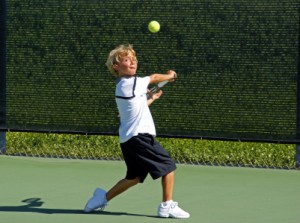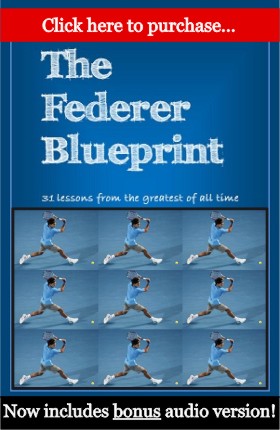Natural Talent: Fact or Fiction?
6 Jun
 Natural talent has been the focus of many studies designed to reveal the secrets of top performers. Such studies asked: What makes the world’s top performers the best at what they do? And many expected to reveal that there are certain people who learn much more quickly than others in their chosen activity, and progress their skills more rapidly.
Natural talent has been the focus of many studies designed to reveal the secrets of top performers. Such studies asked: What makes the world’s top performers the best at what they do? And many expected to reveal that there are certain people who learn much more quickly than others in their chosen activity, and progress their skills more rapidly.
Leaders in this type of research include Anders Ericsson, Bill Chase, Carol Dweck, and Benjamin Bloom, and more recently books by Matthew Syed (Bounce), Daniel Coyle (The Talent Code), Geoff Colvin (Talent is Overrated), and Malcolm Gladwell (Outliers) have brought their ideas further into the public domain. Get hold of these books and read them- their ideas have the potential to change your approach not only to tennis, but to everything you do. Reading these books and following up with further research inspired me to start Blueprint Tennis because I feel that this knowledge is absolutely crucial for anyone who wants to achieve great things. In this and the next few posts I will share with you some of the most useful findings about the relationship (if any) between performance and natural talent.
Elite performers DID NOT learn quicker than anyone else
Of course our focus in this blog is tennis, but let’s begin here by learning some fundamental lessons from musicians. Unlike tennis, where skill is difficult to measure objectively, the ability of musical performers can be measured very precisely by exams, and by their proficiency in playing set pieces of varying difficulties. Learners pass through a series of levels or grades, and they cannot progress until they have satisfied the skill requirements for each grade. This standardisation of ability makes music extremely useful for studying performance, and gives us great opportunities to examine which factors can best explain differences in performance levels. On top of this, natural talent is generally assumed to be more essential in music than any other field (followed closely by sport), so many researchers have targeted music in their search for evidence of natural talent.
In an English study[1], 257 music students from novices to virtuosos were interviewed and tested extensively, with the standard of their performance measured by a uniform national grading system. When the results were analysed to isolate which factors consistently influenced performance, the researchers could not find any evidence of “talent” accounting for differences in ability. It turned out one factor, and only one factor, predicted how musically accomplished the students were: how much they practiced. Now, the best students DID reach higher levels of achievement at younger ages, BUT the number of practice hours taken to achieve a given level was the same for both average performers and top performers. For example, all levels of performers averaged 1500 hours of practice to achieve the level 5 standard. In other words, the best performers got there sooner (and younger), but only because they practiced more each day.
The two most important findings of this study were:
1) There is a direct relationship between practice and performance. This is incredibly empowering because it says that where practice times have been analysed (in this and other studies), the person who has built up the most practice is the better player. Already this allows us take more responsibility for our game. If we cannot beat player X, then we know that our training is the first place we should look.
2) Top performers learnt their skills at the same rate as everyone else. They simply advanced further because they started earlier, practiced more often, or continued for a greater number of years.
The observation that top performers were not able to learn any more quickly than anyone else is particularly damaging to the concept of natural talent, and suggests that it may not be such a key ingredient for success after all. These findings are being duplicated in more and more fields (including many sports) and one of the primary aims of this blog is to hunt down the most relevant of these studies, and continue to pass on the secrets of top performers.
Next blog post: The 10,000 Hour Rule.
The findings outlined above are further supported by the well-known 10,000 hour rule. This concept is extremely important for our understanding of how great players are made. Never heard of it? Then our next post is for you. We examine its origins, the evidence, examples, and what it really means for young tennis players.
References
[1] Sloboda, J.A., Davidson, J.W., Howe, M.J.A., and Moore, D.G. “The role of practice in the development of performing musicians”, British Journal of Psychology 87 (1996), p287-309.

